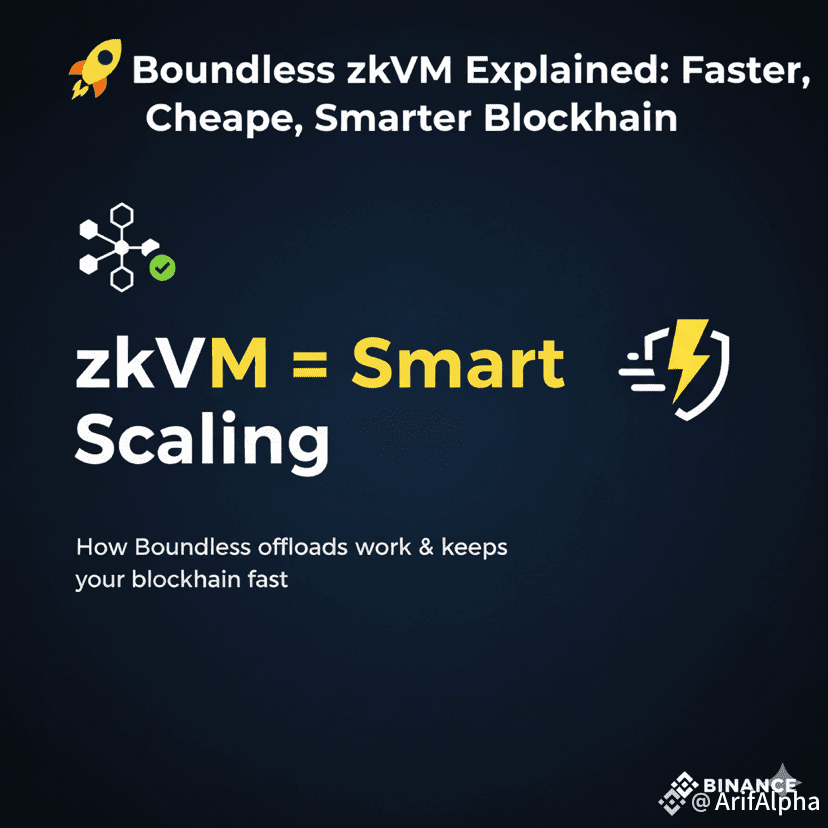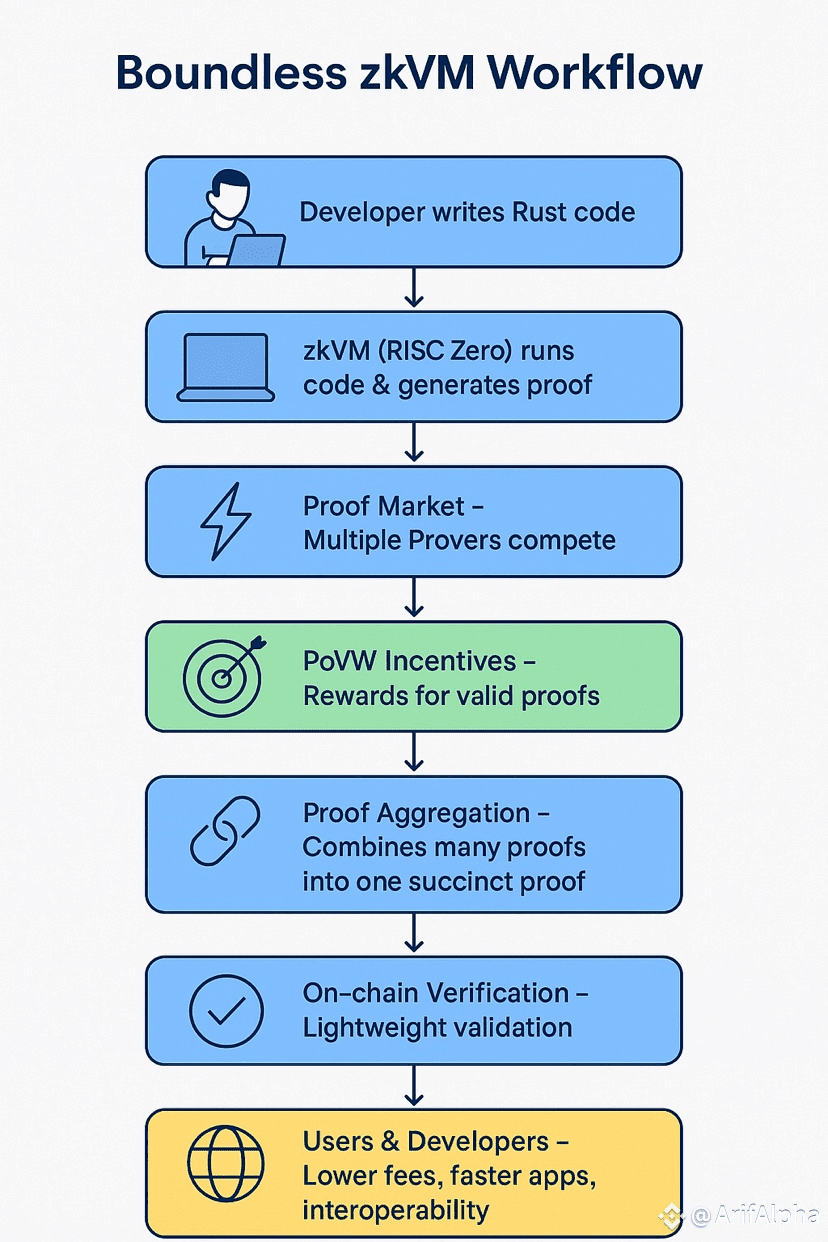
Boundless is building a universal layer for verifiable compute, powered by a zkVM that lifts the burden of executing heavy logic on blockchains. Here’s how it works—without the jargon:
🧠 The Core Idea (Explained Simply)
Normally, every blockchain node must re-run all computations to validate results. That becomes slow and redundant.
Boundless flips that: one specialist (a “prover”) computes the logic off-chain, then generates a zero-knowledge proof (ZKP).
Other nodes don’t redo all the work—they verify the proof, which is lightweight and fast.
The result? You get high throughput, cheaper gas, and scaling without sacrificing security.

🧩 Key Components of Boundless zkVM
1️⃣ zkVM / RISC Zero
Role: The engine where your Rust code runs and produces proofs
Why It Matters: Lets developers write normal code and get proofs without heavy custom tooling
2️⃣ Proof Market / Provers
Role: Many nodes compete to run and prove the work
Why It Matters: Decentralizes computing, keeps it cost-effective and reliable
3️⃣ PoVW (Proof of Verifiable Work)
Role: Incentive model for provers
Why It Matters: Rewards provers only when they deliver valid, useful proofs
4️⃣ Proof Aggregation
Role: Combine many proofs into one succinct proof
Why It Matters: Cuts verification costs drastically on-chain
5️⃣ Steel (zk Coprocessor for EVM chains)
Role: Offloads heavy logic for Ethereum-like chains
Why It Matters: Enables smart contracts to delegate work off-chain and just verify proof on-chain
📈 Why This Matters (for Users & Developers)
Developers can build more complex apps without being limited by gas or block limits.
Users benefit from lower fees, faster finality, and enhanced security.
Boundless serves as a shared compute layer across chains, so apps can be more interoperable.
✅ Final Takeaway
Boundless makes blockchain “smarter” by outsourcing the heavy lifting—instead of every node doing all the work, only one does it and everyone else checks a proof. The result? More scalability, lower cost, and better performance without compromising decentralization.
💡 Question for readers: Do you think zkVMs like Boundless will become the new standard for blockchain scalability?
